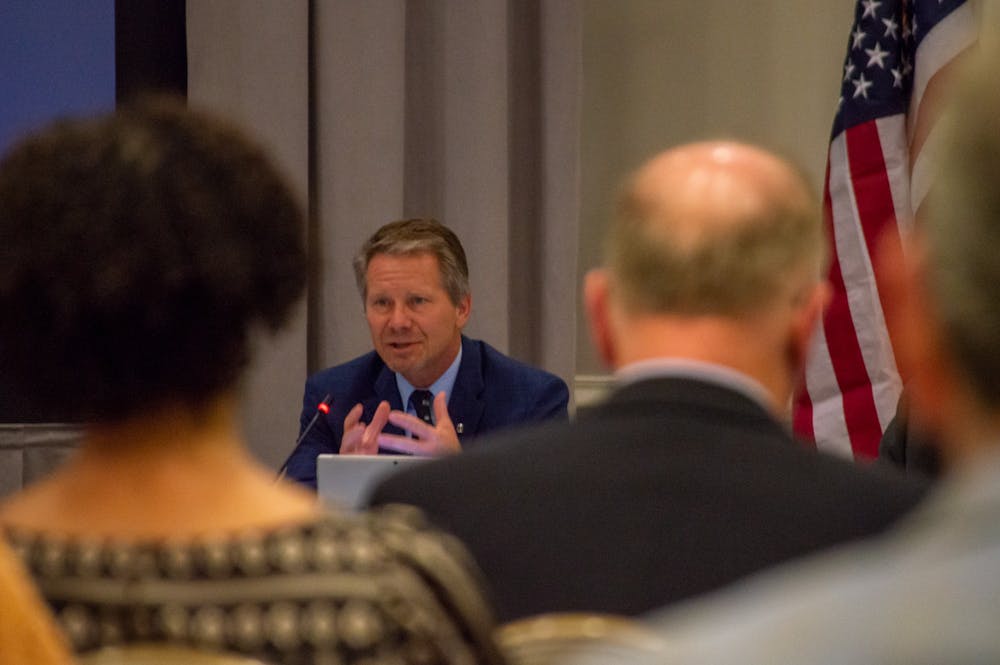During its meeting Thursday, the Board of Trustees voted to pass an amendment to the university naming policy and recognized the successes of both Campaign for Carolina and the Tar Heel Bus Tour.
What's new?
- Provost Chris Clemens proposed that the University's policy for naming facilities allow memorials and markers for significant historical events. Trustee Gene Davis also accepted a friendly amendment to the motion to adhere language within the policy with the university’s mission statement.
- “This policy does not contemplate naming buildings or other things after historical events," Clemens said. "It’s only for historical markers."
- Trustee Marty Kotis said he wanted to avoid any new markers that could spark controversy on campus, such as Silent Sam.
- “Just a few years ago, we were dealing with a marker that caused an awful lot of problems on campus,” Kotis said. “And I want to make sure that we don't create markers that are going to become the rallying points for various groups to come on campus and create division or potentially cause violence.”
- Trustees unanimously passed a motion to honor David Routh, who is to step down as vice chancellor for development later this year, for heading Campaign for Carolina’s success.
- Routh oversaw the campaign surpassing its $4.2 billion goal one year ahead of schedule and oversaw the eight most successful fundraising years in UNC history — attracting more than 215,000 alumni and donors, Trustee and Chairperson David Boliek said.
- Lynn Blanchard, director for the Carolina Center for Public Service, recapped the Tar Heel Bus Tour. The tour lasted three days with two buses, one traveling to the eastern part of the state and one to the west to explore UNC projects across North Carolina. Presenters also shared projects that were stops along the tour.
- “We had 21 stops in 21 counties, covering over 1,000 miles on two buses to see how North Carolina serves the people across the breadth of our state,” Chancellor Kevin Guskiewicz said.
- Stefanie Ferreri, a professor in the Eshelman School of Pharmacy, presented research on the Rural Pharmacy Health Certificate program. She said she and her team are currently working on student recruitment, scholarships and expansion of residency to expand community pharmacies.
- “There's not enough primary care providers for the patients as we have our aging population," Ferreri said. "And this is where community pharmacists can help fill that gap."
- Teshanee Williams, assistant professor of public administration and government, presented research on her collaboration with The SUN Project, which advocates for policies for pregnant women that incur substance use disorder.
- “In terms of their needs, we found that the social determinants of health needs were being met as 61 percent or higher,” Williams said.
- Following the concerns made by housekeepers at the Nov. 9 BOT committee meeting, Boliek addressed the ongoing call for increased housekeeper pay.
- “There's nothing this board has direct authority to do. And if we did, we would do something. But we don't have direct authority to make that happen,” Boliek said.
Who is on the BOT?
● The BOT consists of 13 members, including eight selected by the UNC Board of Governors, four appointed by the N.C. General Assembly and the UNC student body president, who serves as an ex-officio member.
What’s next?
- The next full board meeting of the BOT will be held on Thursday, Jan. 27.




